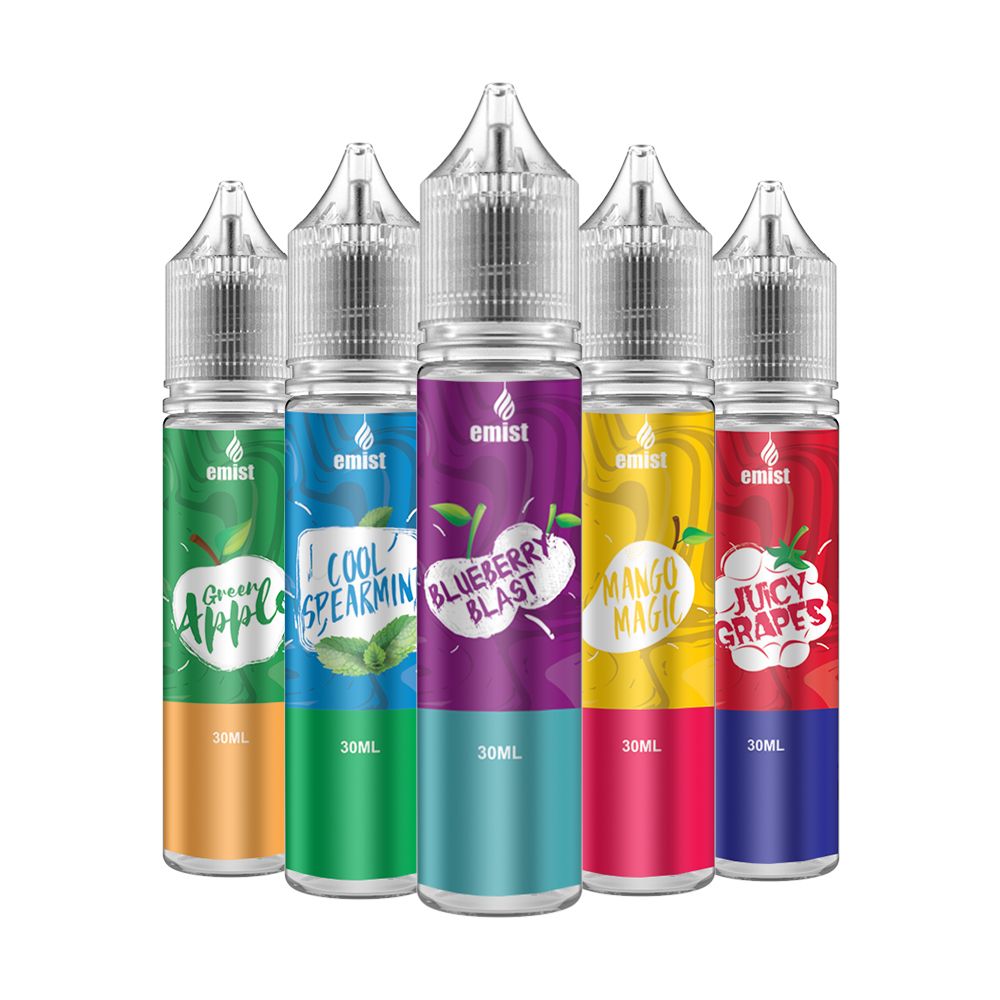Vape Companies Grapple with a Potential E-Liquid Flavor Ban in 2021
For the United States vaping industry, an important regulatory deadline is quickly approaching – and it’s one that you might not be aware of unless you’ve been following the news closely. By September 9, the Food and Drug Administration is set to approve or deny the 2 million premarket tobacco applications that it received from e-liquid makers around the country a year ago. The FDA has stated that it may not process all of the applications by the September 9 deadline and that it intends to prioritize applications from major vaping brands such as JUUL and Vuse. The day of reckoning is at hand for all U.S. e-liquid makers, though, and the FDA has already denied applications for about 55,000 different products received from a few regional e-liquid makers.
What’s going to happen to the U.S. vaping industry as 2021 draws to a close? This article will explore some of the possible outcomes. First, though, let’s learn a bit more about how the industry got to where it is today.
What’s a Premarket Tobacco Application?
To understand the current situation that the U.S. vaping industry faces, you must first understand how the FDA regulates the industry. In the United States, the Family Smoking Prevention and Tobacco Control Act is the law that regulates the sale of all tobacco products. According to the Tobacco Control Act, no new tobacco product can be marketed in the United States as of February 2007 unless the maker of that product submits a Premarket Tobacco Application (PMTA) and receives a marketing order from the FDA. To receive a marketing order, the maker of the product must prove that the product is appropriate for the protection of public health and will not encourage new initiation of nicotine use.
In 2016, the FDA announced that it would be extending its regulatory authority to cover vaping products and that the agency would be regulating those products as tobacco products under the provisions of the Tobacco Control Act. Since no vaping product sold at that time was available in the United States in 2007, every product on the market was a “new tobacco product” that required a PMTA. The final deadline for all e-liquid makers to submit PMTAs for their products was September 9, 2020. The FDA is set to render decisions on those applications by September 9, 2021 – and that’s how we got to where we are today.
So, what’s next?
What Happens to the Vaping Industry on September 9?
On or around September 9, the FDA will approve or deny the approximately 2 million PMTAs that it has received from manufacturers in the vaping industry – mostly from e-liquid makers. Every PMTA that’s approved receives a marketing order from the FDA and is therefore legal to sell in the United States. If a PMTA is denied, that product must be removed from the market until and unless the maker is able to correct any deficiencies in its application and gain approval.
At the time of writing, the FDA has not yet approved a PMTA for any vaping device or e-liquid. Therefore, it isn’t entirely certain what the agency is looking for in an application or whether the FDA will approve any of the PMTAs it has received at all.
What’s at Stake for the U.S. Vaping Industry in 2021?
The thing that’s at stake for the U.S. vaping industry as the FDA considers its decision on the outstanding PMTAs is nothing less than the existence of the industry itself. If the FDA denies every application that it has received, it would mean that the agency has effectively declared every vaping product on the American market to be illegal. If the FDA approves a substantial number of applications for e-liquids in flavors other than tobacco and menthol, the agency is certain to face a harsh response from anti-vaping groups. These are just a few of the factors at play here.
- A substantial number of minors in the United States – a reported 20 percent of high school students, in fact – use vaping products despite the fact that they can’t buy them legally. It’s likely that the vast majority of those teens wouldn’t be nicotine users if vaping didn’t exist. That’s why there are anti-vaping groups in the U.S.
- The anti-vaping groups are convinced that flavored e-liquids entice teens to vape. They’ve campaigned tirelessly to have almost all e-liquid flavors removed from the market. If the FDA grants marketing orders to makers of flavored e-liquids, the anti-vaping groups will say that the agency isn’t doing an adequate job of protecting public health.
- The vaping industry now employs many thousands of people across the United States. If the FDA denies all PMTAs from the vaping industry, those people will have nothing to sell and will be out of work. The economic impact would be enormous.
- Millions of American smokers have quit smoking successfully by switching to vaping. If the FDA leaves no e-liquids available for those people to buy – or if the FDA denies all applications for the flavored e-liquids that most vapers prefer – many of those people will undoubtedly return to smoking, which would be a terrible loss for public health.
Given the complexity of the issues, it is entirely possible that the FDA will not issue decisions on all PMAs by the September 9 deadline.
Could the U.S. Vaping Industry Disappear on September 9?
There is one possible alternative that could prevent the death of the U.S. vaping industry on September 9, and that alternative is synthetic nicotine. Synthetic nicotine – or tobacco-free nicotine as it is sometimes called – is nicotine that’s created in a laboratory and not extracted from tobacco leaves. Some believe that the FDA’s authority to regulate tobacco products does not extend to products containing tobacco-free nicotine, and companies have begun to assert that belief by releasing e-liquids containing synthetic nicotine rather than tobacco-derived nicotine. The makers of synthetic nicotine e-liquids have not submitted PMTAs for their products because they believe they aren’t legally obligated to do so.
Thanks to synthetic nicotine, it’s certain that something of the American vaping industry would remain after September 9 even if the FDA denied all of the PMTAs it has received. However, it’s impossible to say how long that will last. The FDA will almost certainly claim that it has the authority to regulate vaping products with synthetic nicotine. However, the makers of synthetic nicotine products will most likely claim that the FDA lacks that authority unless Congress amends the Tobacco Control Act. Ultimately, both sides will probably battle in court – and what happens from there is anyone’s guess. If you vape, it wouldn’t be a bad idea to start stocking up on e-liquid now if you haven’t already.



